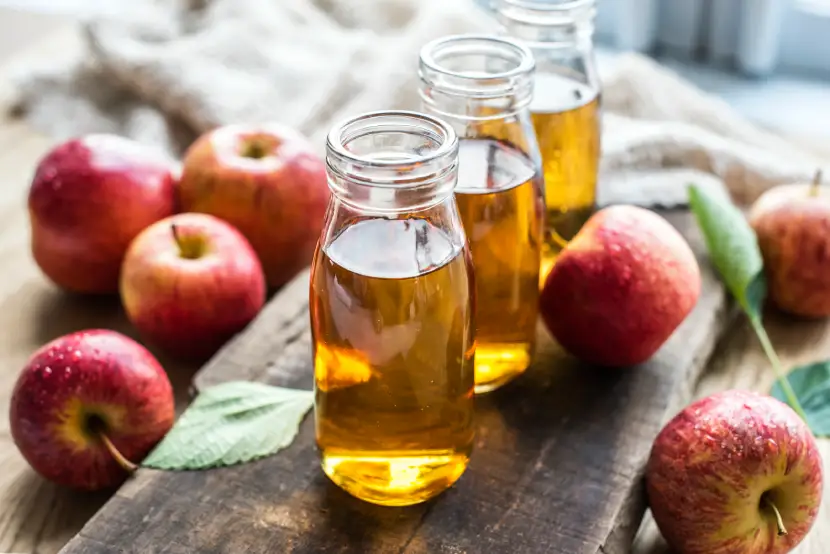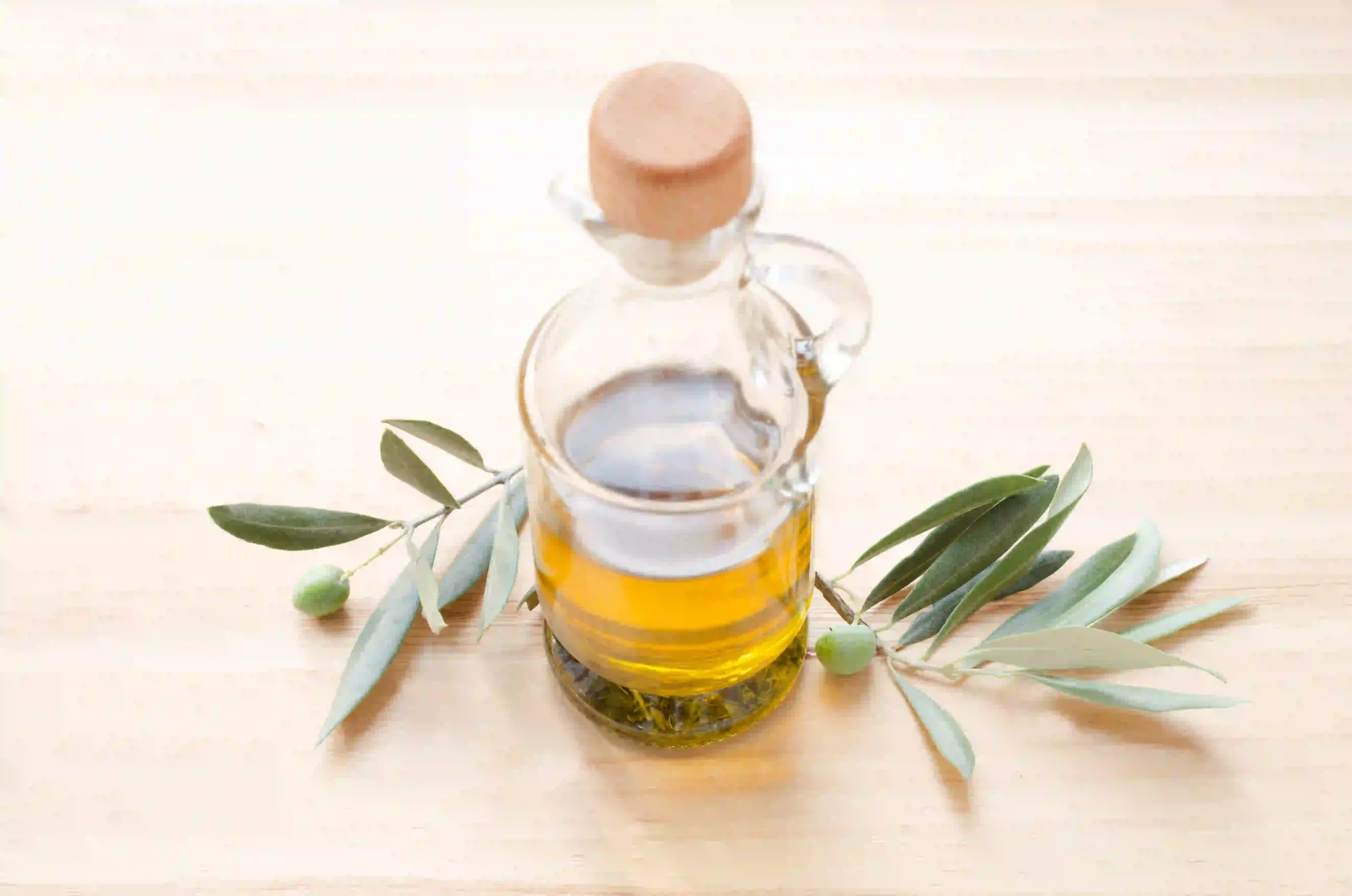Understanding Apple Cider Vinegar
What is Apple Cider Vinegar?
When exploring natural hair care solutions, an apple cider vinegar hair rinse stands out as a time-tested remedy. Apple cider vinegar (ACV) is created through a two-step fermentation process of crushed apples. Initially, yeast converts the fruit’s natural sugars into alcohol, followed by bacteria transforming this alcohol into acetic acid, the primary active compound. While traditionally known for culinary applications, creating an effective apple cider vinegar hair rinse has become increasingly popular among those seeking natural hair care alternatives.
The Role of “The Mother” in ACV
The most beneficial apple cider vinegar hair rinse comes from raw, unfiltered ACV containing “The Mother” – a natural complex of beneficial compounds. This cloudy, cobweb-like substance contains enzymes, proteins, and beneficial bacteria that contribute to its potential beauty benefits. When selecting ACV for your hair care routine, look for products specifically mentioning “with the Mother” on the label, as this indicates minimal processing and maximum retention of natural compounds.
Organic vs. Regular Apple Cider Vinegar
For those considering an apple cider vinegar hair rinse treatment, choosing organic variants offers distinct advantages. Organic certification ensures the apples used are grown without synthetic pesticides and fertilizers, resulting in a purer final product. This choice becomes particularly important when applying the solution directly to your scalp and hair, as it helps minimize exposure to potentially harmful residues.

The Science Behind ACV for Hair Care
How ACV Affects Hair and Scalp Health
Understanding how an apple cider vinegar hair rinse works involves examining its natural acidity. With a pH level similar to healthy hair (around 4.5-5.5), ACV helps restore and maintain your hair’s natural pH balance, which can be disrupted by alkaline shampoos and hard water. This pH-balancing effect helps seal the hair cuticle, reducing frizz and increasing shine.
Key Beneficial Components
The acetic acid in your apple cider vinegar hair rinse acts as a natural clarifying agent, effectively removing product buildup without harsh chemicals. Additionally, ACV contains minerals like potassium and enzymes that may support scalp health. The antimicrobial properties can help maintain a healthy scalp environment, crucial for optimal hair growth.
pH Balance and Hair Health
When incorporating an apple cider vinegar hair rinse into your routine, you’re taking a significant step toward maintaining proper pH balance. The acidic nature helps flatten the hair cuticle, resulting in smoother, more manageable hair that reflects light better and appears shinier. Many users report noticeable improvements in hair texture and manageability after regular use.
Benefits of Apple Cider Vinegar Hair Rinse
Scalp Health Benefits
Regular use of this natural solution can help maintain a healthy scalp environment. The natural compounds may help control dandruff and itchiness by addressing the underlying causes of scalp issues. Its antimicrobial properties can help maintain a balanced scalp microbiome, which is essential for healthy hair growth.
How to Make Your Own Apple Cider Vinegar Hair Rinse
Basic Recipe and Ratios
Creating an effective apple cider vinegar hair rinse starts with the right proportions. The standard ratio is one part ACV to four parts water, though you may need to adjust this depending on your hair type. For sensitive scalps, dilute the solution further by using one part ACV to five parts water. It’s crucial to always dilute ACV properly, as using it undiluted can potentially irritate your scalp and damage your hair.
Enhanced Recipes with Natural Ingredients
To amplify the benefits of your apple cider vinegar hair rinse, consider incorporating complementary natural ingredients. Rosemary or lavender essential oils can add pleasant fragrance while contributing their own hair-strengthening properties. For an extra clarifying effect, combine your apple cider vinegar hair rinse with a small amount of baking soda, creating a powerful yet gentle cleansing solution.
Storage and Shelf Life
Proper storage of your apple cider vinegar hair rinse solution is essential for maintaining its effectiveness. Store the mixture in a dark glass bottle away from direct sunlight and heat. While ACV itself doesn’t expire easily, it’s best to prepare fresh batches of your rinse solution every two weeks to ensure optimal results.
Step-by-Step Application Guide
Preparation Methods
For the most effective apple cider vinegar hair rinse treatment, timing is everything. Apply the solution after shampooing but before conditioning. Prepare your mixture fresh before each use, or store a diluted solution in a spray bottle for convenience. Using lukewarm water in your mixture helps maintain comfort during application while ensuring the beneficial compounds remain active.
Application Techniques
To achieve optimal results with your apple cider vinegar hair rinse, proper application technique is crucial. First, shampoo your hair as usual and rinse thoroughly. Then, slowly pour or spray the ACV solution over your scalp and hair, taking care to distribute it evenly. Massage it gently into your scalp for 1-2 minutes to ensure thorough coverage and stimulate blood flow.
Frequency Recommendations
The frequency of apple cider vinegar hair rinse applications depends on your hair type and specific needs. For most people, using the rinse 1-2 times per week provides optimal results without over-treating the hair. Those with oily hair might benefit from up to three applications per week, while those with dry or color-treated hair should limit use to once weekly.
Alternative Uses of Apple Cider Vinegar
Health and Wellness Applications
Beyond its role in hair care, ACV offers numerous health benefits. Many people incorporate apple cider vinegar detox drinks into their wellness routines, often combining ACV with cranberry juice or other natural ingredients. Some prefer taking apple cider vinegar gummies, which offer similar benefits in a more palatable form.
Beauty and Skincare Uses
ACV’s versatility extends to various beauty applications. A diluted apple cider vinegar foot soak can help address foot odor and maintain healthy skin. When combined with other natural ingredients, ACV can be used in face toners, helping to balance skin pH and clarify complexion. However, always remember to properly dilute ACV for any skincare application to avoid irritation.
Best Apple Cider Vinegar Products
Top ACV Hair Products
When selecting products containing apple cider vinegar hair rinse formulations, focus on those with minimal artificial ingredients. Look for products that list ACV among their first ingredients and maintain a proper pH balance. Professional-grade formulations often combine ACV with nourishing ingredients like aloe vera, botanical extracts, and natural oils to enhance their benefits.
What to Look for When Buying
Quality matters significantly when choosing an apple cider vinegar hair rinse product. Opt for raw, unfiltered varieties containing “the Mother” for maximum benefits. Consider the concentration of ACV in commercial products, as overly diluted formulations may not provide optimal results. Products in dark glass bottles typically offer better preservation of active ingredients.
Combining ACV with Other Natural Ingredients
ACV and Baking Soda Treatments
Creating an effective apple cider vinegar hair rinse can be enhanced by carefully incorporating baking soda. This combination helps remove stubborn buildup while maintaining proper pH balance. However, use this combination sparingly, as excessive use might disturb your scalp’s natural oil production.
Essential Oil Combinations
Enhance your basic ACV solution with essential oils known for promoting hair health. Popular choices include rosemary for stimulating growth, lavender for calming the scalp, and tea tree for its purifying properties. Always perform a patch test before applying any new essential oil combination to ensure compatibility with your skin.
Special Applications
Pet Care and ACV Solutions
While apple cider vinegar hair rinse solutions are primarily known for human use, properly diluted ACV can also benefit pet grooming routines. When using ACV for dogs, ensure proper dilution and avoid contact with eyes. Many pet owners report improved coat condition and reduced skin irritations with careful application.

Safety and Precautions
Potential Side Effects
Understanding potential reactions helps ensure safe usage of ACV hair treatments. Some users might experience temporary scalp tingling or increased sensitivity. Always perform a patch test before full application, and discontinue use if irritation occurs. Those with sensitive scalps should start with more diluted solutions.
Who Should Avoid ACV
Certain individuals should exercise caution with ACV hair treatments. Those with broken skin, open wounds, or severe scalp conditions should consult healthcare professionals before use. Additionally, people with particularly sensitive skin might need to explore alternative natural hair care options.
Common Mistakes to Avoid
The effectiveness of your hair care routine depends on proper application techniques. Avoid these common errors:
- Using undiluted ACV directly on hair or scalp
- Leaving the solution on for extended periods
- Applying too frequently, which can lead to dryness
- Using unfiltered water for dilution
- Storing mixed solutions for too long
Alternative Solutions
Natural Substitutes for ACV
While an apple cider vinegar hair rinse remains a popular choice, several natural alternatives can offer similar benefits. Lemon juice, when properly diluted, provides comparable acidic properties. White vinegar, though less nutrient-rich, can serve as a suitable apple cider vinegar substitute for basic clarifying purposes. However, these alternatives may lack the complete range of beneficial compounds found in ACV.
Commercial Product Alternatives
Many commercial hair care products now incorporate acidic ingredients that mirror the benefits of an apple cider vinegar hair rinse. Look for products containing ingredients like salicylic acid or citric acid, which can help maintain proper scalp pH. These formulations often combine clarifying agents with protective ingredients to prevent over-drying.
Frequently Asked Questions
Q: Does apple cider vinegar expire when used in hair rinse solutions?
A: While pure ACV has a long shelf life, diluted apple cider vinegar hair rinse should be used within two weeks of preparation for optimal effectiveness. Store the solution in a cool, dark place to maintain its properties.
Q: How often should I use an ACV rinse on my hair?
A: Frequency depends on your hair type and needs. Generally, using the treatment 1-2 times per week provides optimal results without over-treating the hair. Adjust based on your hair’s response.
Q: Can I use ACV rinse on color-treated hair?
A: Yes, when properly diluted, these treatments are generally safe for color-treated hair. However, start with a more diluted solution and monitor your hair’s response.
Q: Is it necessary to rinse out the ACV solution?
A: Yes, always rinse the solution thoroughly from your hair after application. Leaving it in may lead to dryness or irritation.
Q: Can I combine ACV rinse with regular shampoo?
A: While possible, it’s recommended to use them separately. Apply the ACV solution after shampooing for best results.
Conclusion
Apple cider vinegar hair rinse treatments offer a natural, effective solution for various hair and scalp concerns. When used properly, these treatments can improve hair shine, reduce buildup, and help maintain scalp health. However, success lies in proper preparation, application, and understanding your hair’s specific needs.
Remember that while natural remedies can be highly effective, they require consistency and proper application to achieve optimal results. Start with more diluted solutions and adjust based on your hair’s response. Pay attention to how your hair reacts, and modify the treatment frequency accordingly.
By following the guidelines provided in this comprehensive guide, you can safely incorporate this beneficial treatment into your hair care routine. Whether you choose to create your own solution or opt for commercial products, understanding the principles behind ACV’s effectiveness helps ensure the best possible results for your hair care needs.



